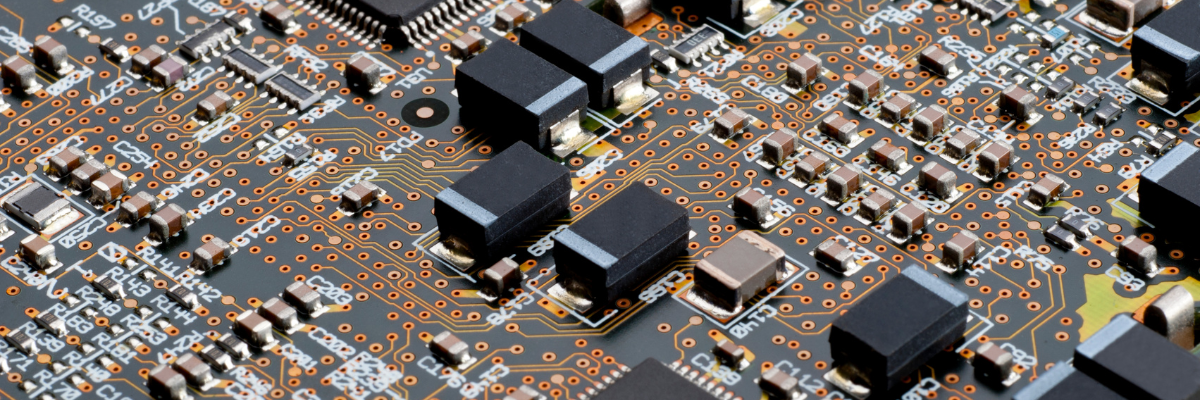Rigid-flex circuit boards, as you are aware, have features of rigid and flexible boards, resulting in a versatile and robust solution for many modern electronic applications. These boards incorporate rigid sections for component mounting and flexible areas for making reliable interconnections, enabling intricate designs and patterns. One of the popular types of rigid-flex boards that find immense applications is the one that utilizes Teflon as the insulating material. Known for its outstanding thermal stability and electrical insulation properties, 2-layer Teflon rigid-flex circuit boards are particularly suited for high-frequency applications across industries such as aerospace, medical devices, and consumer electronics. Read the post to learn more about this versatile type of rigid-flex circuit.
What is a 2-layer Teflon Rigid Flex Circuit Board?
A 2-layer Teflon rigid-flex circuit board is an advanced form of PCB encompassing two distinct conductive layers. These layers are generally separated by an insulating material, Teflon, and interconnected by vias (electrical pathways). Teflon, known as Polytetrafluoroethylene (PTFE), is a high-performance synthetic fluoropolymer noted for its exceptional qualities. Its high thermal stability, excellent chemical resistance, low friction coefficient, and superior electrical insulation make it widely utilized in the making of rigid-flex boards for demanding applications across industries.
Notable Benefits of Teflon Rigid Flex Boards
Following are the key benefits of 2-layer Teflon rigid-flex circuit boards.
- Minimal Signal Degradation: Teflon’s low loss tangent helps prevent signal degradation, especially at higher frequencies. This feature is beneficial in sectors such as medical device manufacturing, telecommunications, and aerospace where preserving signal clarity and transmission efficiency is of utmost importance.
- Low Dielectric Constant and Minimal Loss: With a dielectric constant typically around 2.1 to 2.2 and low dielectric loss, Teflon improves signal integrity and reduces attenuation, especially in high-frequency applications. This makes it ideal for RF and microwave circuits where maintaining signal quality is essential.
- Unmatched Mechanical Strength: Teflon offers high mechanical strength despite its light weight, which contributes to the added durability and reliability of the circuit boards. This strength is significant in applications where the boards are meant for applications involving mechanical stress or vibration.
- Flexibility and Durability: The combination of the material’s flexibility and high performance enables manufacturers to create complex designs that can be bent or folded without affecting electrical performance. This makes them suitable for applications where space is a constraint.
- Superior Thermal Stability: Teflon retains its mechanical and electrical properties across a wide temperature range. Thanks to its exceptional thermal stability. This feature of this insulating material is essential for applications experiencing significant temperature variations.
- Improved Chemical Resistance: Teflon is primarily chosen for harsh chemical environments owing to its superior resistance to chemicals, including acids and bases. This property augments the longevity and reliability of the circuit boards, especially in chemically aggressive operational settings.
- Dependability in Harsh Conditions: Teflon’s robustness against varying temperature ranges, harsh chemicals, and extreme mechanical stress enhances the reliability of circuit boards in demanding operational environments. This, in turn, ensures consistent and reliable performance over their lifespan.
Design Considerations:
Creating effective and durable 2-layer Teflon rigid-flex circuit boards demand careful consideration of several important factors.
Here are a few of the key aspects to consider during the design process of a 2-layer Teflon rigid-flex circuit board:
- Thermal Stability: Teflon’s lower thermal expansion coefficient than traditional FR4 materials impacts dimensional stability under varying temperature ranges. In such cases, making certain design adjustments is imperative to avoid mechanical stress.
- Material Flexibility: Teflon’s rigidity compared to flexible polyimide substrates used in rigid-flex PCBs demands proper balancing of layer thickness. This helps to maintain mechanical integrity while achieving the required flexibility for bending and folding.
- Signal Integrity: Leveraging Teflon’s low dielectric constant for high-frequency applications demands precise optimization of trace widths and spacing. This contributes to superior signal integrity throughout the circuit.
- Layer Configuration: Ensuring appropriate stack-up design is extremely important to control impedance and maintain consistent signal performance. To achieve this, designers have to strategically arrange Teflon layers, manage copper thickness, and position vias to minimize impedance variations across the PCB.
Application Areas of 2-layer Teflon Rigid Flex Circuit Board
2-layer Teflon rigid-flex circuit boards find several applications across industries. A few of the several applications of Teflon boards include:
- Automotive Electronics: The boards find applications in safety systems, and infotainment systems.
- Consumer Electronics: They are used in wireless communication devices, high-speed data transfer equipment, smartwatches and fitness trackers.
- Telecommunications: They are utilized in antenna systems and RF/microwave devices.
- Aerospace and Defense: They find applications in satellite systems and radar systems.
- Medical Devices: Teflon boards are used in MRI machines, ultrasound equipment and implantable medical devices.
- Industrial Electronics: They are utilized in measurement instruments and control systems.
After delving into the numerous benefits and applications of 2-layer Teflon rigid-flex circuit boards, you might be considering them for your next project. However, in order to ensure the highest quality and reliability, it is highly advisable to have them manufactured by trusted PCB providers like Rigiflex. Customizing your circuits with a reputable manufacturer like Rigiflex guarantees precision, durability, and optimal performance for your specific needs.

